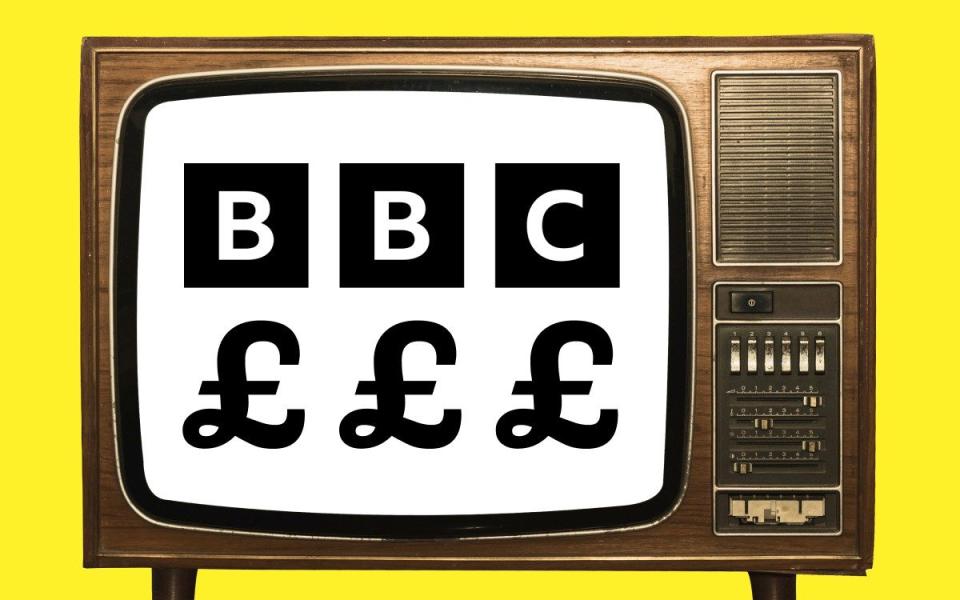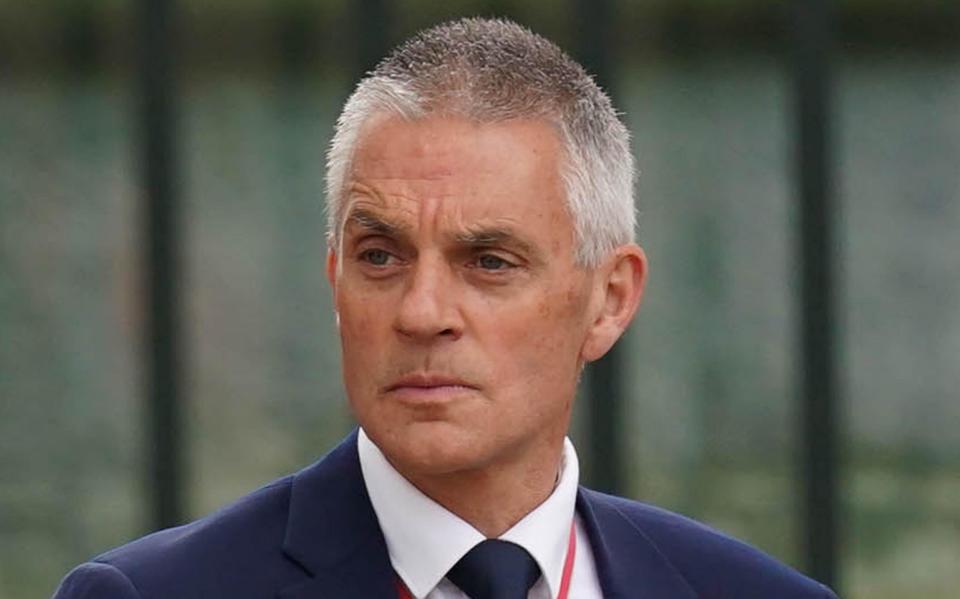Deeper cuts loom at BBC as Sunak prepares to block licence fee increase

After three years in charge, BBC boss Tim Davie is used to navigating the vicissitudes of an organisation in permacrisis.
Even for him, though, the threat of a further funding cut will have come as a nasty surprise.
After a two-year freeze on the licence fee, the BBC was gearing up for an inflation-linked increase that would provide a much-needed boost to its finances.
Yet those hopes appear to have been dashed by Rishi Sunak, who has threatened to renege on the agreement as he warned the corporation needs to be “realistic” about what households can afford.
So as the BBC stares into a deepening black hole in its finances, Davie will now be forced to cut even deeper into the struggling media behemoth’s output.

Under current forecasts, the price of the licence fee is set to jump by almost £15 to £173.30 in April. This increase, calculated from the average rate of inflation in the year to September, would be the biggest single rise for almost four decades.
But the Government is preparing to block this increase and force the BBC to accept a smaller jump instead – most likely by selecting a more muted inflation rate to determine the change.
For the BBC, this decision would exacerbate its troubles. The broadcaster has warned that the two-year freeze has opened up a £400m shortfall in its finances.
Davie, a commercially-minded executive who previously led BBC Studios, has already begun to swing the axe.
The BBC announced plans to broadcast 1,000 fewer hours of new TV shows this year, relying on more repeats in a bid to save cash.
It has set out plans to move BBC Four and CBBC online, made sweeping cuts to its local radio output and merged its domestic and global news channels.
Just last week, the broadcaster also announced a controversial decision to scale back Newsnight – cutting the programme to 30 minutes and reducing more than half its staff.
Deborah Turness, chief executive of news and current affairs, blamed the BBC’s “tough financial situation”.
Collectively, those measures are estimated to save around £200m annually by 2027 – only halfway to recouping the deficit.
Now, though, the situation looks set to worsen. If the Government were to opt for only a 6.7pc increase in the licence fee next year – reflecting the inflation rate in September – the BBC’s annual shortfall would balloon to around £516m, according to Enders Analysis.
It comes as inflation in the production sector drives up the cost of making programmes.
At the same time, the BBC has had to increase wages for its 21,000 employees due to cost of living pressures.
Supporters of the BBC argue that the organisation has been punished with funding cuts, even as streaming rivals such as Netflix and Disney have increased their subscription prices by around 30pc.
Roger Mosey, the former head of BBC TV News, brands the funding squeeze as “shortsighted and destructive”.
Jane Martinson, former media editor at the Guardian and a journalism professor at City, University of London, accused the Government of using the BBC as a “strange scapegoat”.
It is now all but inevitable that the BBC will have to make even more cuts. The crucial question, though, is where?
Alice Enders at Enders Analysis says the BBC is likely to swing the axe on big-budget productions, rather than tinkering around with smaller cutbacks.
The broadcaster earlier this month said it will take Top Gear off air for the “foreseeable future”.
The decision comes after presenter Freddie Flintoff suffered serious facial injuries in a high-speed crash last year, but bosses are likely to welcome the financial benefits of putting such an expensive show on ice.
Other controversial victims could include Sir David Attenborough’s popular but expensive natural history series, or the flagship Saturday night hit Strictly Come Dancing.
Yet by making big cuts to popular programmes, the BBC risks alienating audiences at a time when it is already shedding viewers – particularly younger ones – to streaming rivals. The public service broadcaster lost 500,000 licence fee payers last year.
“The problem is the minute you cut the content you cut the audience,” says Enders. “It’s very difficult to recover from that as a public service broadcaster.”
Davie has other levers to pull. At the heart of his strategy has been a fresh focus on the broadcaster’s commercial arm, boosting revenues from that part of the corporation in a bid to reduce reliance on the licence fee.
Yet BBC Studios has also been hit by surging production costs, as well as broader industry woes such as the Hollywood strikes.
So the BBC chief must now decide which of his sacred cows to slaughter without plunging the broadcaster into a vicious circle of decline.
Looking further ahead, Davie will be preparing for a future without the licence fee. Alternative funding models, including subscriptions and advertising, are expected to be up for discussion when the BBC’s Charter agreement is renewed in 2027.
At least the BBC director-general will not face this challenge alone. Securing a long-term model for the broadcaster will be top of the agenda for the new BBC chairman, who is expected to be named this week.
The frontrunners are thought to be Amanda Spielman, the under-fire head of schools watchdog Ofsted, and Dr Samir Shah, a long-serving TV executive who previously served on the BBC board.
However, in the short term, the BBC faces a critical dilemma of how to shore up finances without putting viewers off completely. If it loses its audiences, it may never get them back.

 Yahoo Finance
Yahoo Finance 